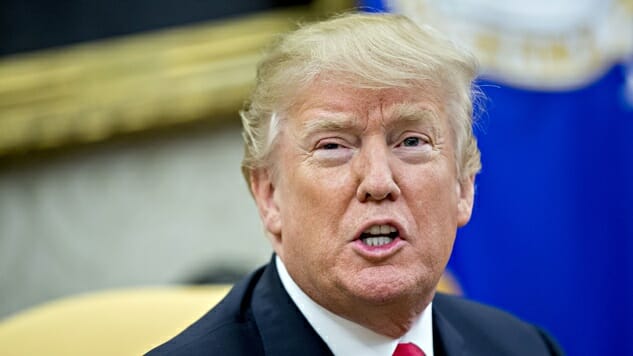Trump Disbanding the Pandemic Response Team in 2018 Directly Hindered Coronavirus Relief, Experts Say
Photo by Andrew Harrer/Pool/Getty
In 2018, the Trump administration disbanded the White House pandemic response team. It was originally created as a branch of the National Security Council for Global Health Security and Biodefense in 2016 by President Barack Obama after the administration’s response to the 2014-15 Ebola epidemic was deemed insufficient.
The dissolution of this crucial team of experts has been recently at the forefront of discussions as to why the U.S. has had such a poor response to the global coronavirus pandemic.
On Friday, Trump was asked about his decision to disband the pandemic response team at a news conference in the Rose Garden, to which he responded by feigning insult and ignorance. “I just think it’s a nasty question,” Trump said. “And when you say ‘me,’ I didn’t do it … I don’t know anything about it.”
WATCH: @Yamiche asked the president about a reorganization of the National Security Council that dismantled a key pandemics team in 2018.
President Trump: “I just think it’s a nasty question… You say we did that, I don’t know anything about it.” pic.twitter.com/lWo0YKS1rl
— PBS NewsHour (@NewsHour) March 13, 2020
John Bolton, national security adviser to the White House, took to Twitter to attempt to dispel the criticism lobbed at himself and the Trump administration at large. He claimed that in actuality, the NSC structures were simply “streamlined” instead of disbanded, and that any arguments against the process were due to the fact that the “angry Left just can’t stop attacking.”
Claims that streamlining NSC structures impaired our nation’s bio defense are false. Global health remained a top NSC priority, and its expert team was critical to effectively handling the 2018-19 Africa Ebola crisis. The angry Left just can’t stop attacking, even in a crisis.